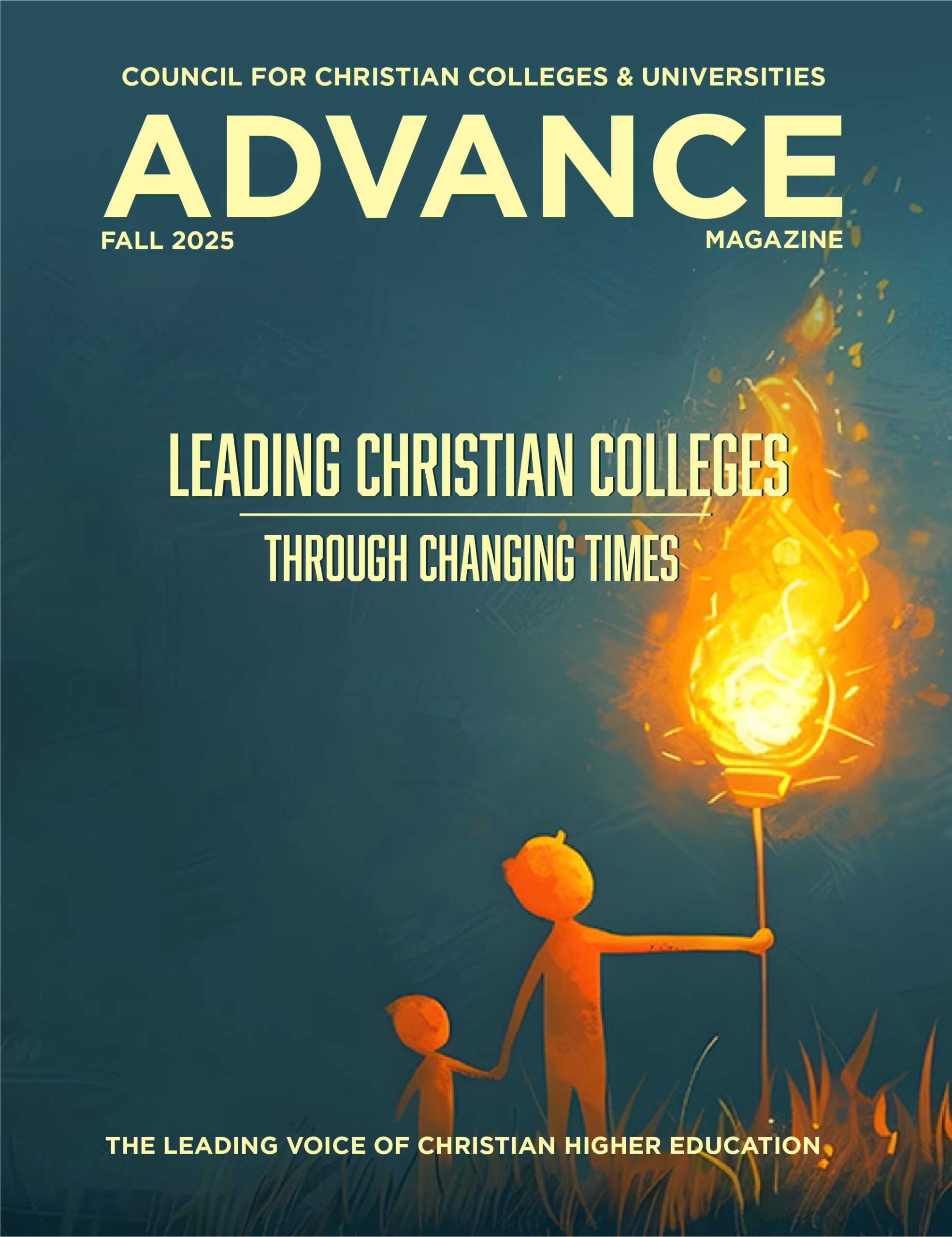Magazine
For many of us who toil away in the trenches of Christian higher education, summer provides a rare opportunity to read something outside our immediate subject area – something like, say, early church history. My book of choice this past summer was The Patient Ferment of the Early Church, by historian Alan Kreider, and it was well worth the effort. In fact, it ended up being far more relevant to my work than I might have imagined.
Kreider explores a question that has fascinated many historians: What explains the remarkable growth of the early church from a small, obscure sect to the dominant religion of the Late Roman Empire? His answer is both counterintuitive and provocative: patience.
Christians in the first couple of centuries, he argues, didn’t do missions, evangelism, or “outreach” as we tend to think of it today. Rather, they occupied themselves with daily habits of moral living, caring for the poor, and communal worship centered around the rituals of baptism and the Lord’s Supper.
Most significantly, they practiced patient endurance amid hardship and let God worry about church growth. They believed that Christianity lived out patiently and communally would attract others who noticed their countercultural practices in work, sexual ethics, entertainment, charity, and nonviolence.
Why was patience important? The early Christians believed that God’s power at work in the world steadily, imperceptibly, and inexorably. One historian has likened it to a fermenting process that works invisibly but powerfully under the surface of things. Such a faith in God’s steady, guiding influence fosters a confident patience among his followers.
Kreider’s insights about the “patient ferment” of early Christianity got me thinking: If patience truly is a virtue – and one that is rarely seen in today’s hectic, technology-driven society – how would a renewed faith in the virtue of patience impact Christians today? More specifically, what would patience look like in the world of Christian higher education?
Of course, educators must anticipate and adapt proactively to change; leadership often requires bold action. But is there space, amid our planning and changing, to practice patience as educators? Here are a few possibilities.
First, we can recognize that for students, education is often a slow and imperceptible process. While the student development professionals among us may be reluctant to use “fermentation” in association with undergraduates, the metaphor is a useful one.
We educators want to see results and measure outcomes. And even if we don’t, our constituents – whether they be politicians, accreditors, or parents – often demand it. But how does one track the process of fermentation? According to whose timeline?
Gardeners understand that a heavy downpour on parched ground just runs off into the ditch. What is needed is light and consistent watering until the soil gradually loosens to absorb the water. Similarly, anyone who has spent significant time teaching knows that while we can give frequent assignments and exams, deep learning can’t be fire-hosed into our students. And the results may not show up for quite a while.
Early in my teaching career, a student of mine was particularly resistant to a perspective on American history that I was attempting to instill in my students. His final paper left me with that “Why bother?” feeling that teachers sometimes experience. I met him a few years after his graduation, however, and he remarked amusedly, “Can you believe what I wrote in that final paper? It took me a few years to really get what you were trying to say.”
While we plan our courses and curricula and seek to measure outcomes, we need to balance our best efforts as teachers with a good dose of patience and entrust the slow but powerful process of learning to God.
For those of us in academic leadership, patience may apply in another way. What would it mean to lead patient institutions? Surely we need to plan for the future and adapt to changing conditions. “Nimble” is the word that institutions seek to embody nowadays.
But there’s also a danger of being too quick to adapt, of impatiently pursuing every new thing out there. A decade ago, education experts were warning of the “digital tsunami” that was on the verge of ending higher education as we know it. Today we recognize the value of MOOCs, and many CCCU institutions have expanded into online education. But digital learning has by no means made traditional, holistic, residential-based education obsolete.
We educators need to complement our desire to adapt to a changing external environment with an internal focus on faithfulness to our institutional mission and vision. It’s through the patient, consistent practice of the communal habits of education – classroom interactions, writing and grading papers, studying for exams, conversations in dorm rooms or corners of the dining room, worshiping and playing as a community – that fermentation takes place: Students are gradually transformed. Institutions evolve in healthy directions.
In other words, perhaps the strategic planning committee needs to be paired with a committee on institutional patience and integrity. One group ensures that the institution prepares for what’s ahead; the other group ensures that the institution firmly and patiently practices faithfulness to the unchanging mission to which it is called. Nimbleness and patience make for good bedfellows.
After all, if Kreider is correct, it was the early church’s internal practices that attracted converts, not elaborate outreach campaigns. Similarly, for Christian colleges and universities, it’s the value of what students experience in the classroom, dining room, and faculty offices that ultimately will decide our fate, not the social media campaign that may have attracted them in the first place.
Of course, the early Christians could only demonstrate patience amid adversity because they trusted in a loving God who controlled the future. Amid challenges that can sometimes seem overwhelming, it’s important for us to remember that God is in control of Christian higher education, even when his hand is not always apparent.
We are called to faithfulness to God’s calling, not to pursuing every new trend in a continual quest for relevance. Ultimately, our confident patience as Christian educators stems from faith, not just in carefully crafted strategic plans, but in a God who works – often slowly and imperceptibly – to bring about his redemptive purposes through us and though our institutions.
Rick Ostrander is vice president for academic affairs and professional programs at the CCCU.



